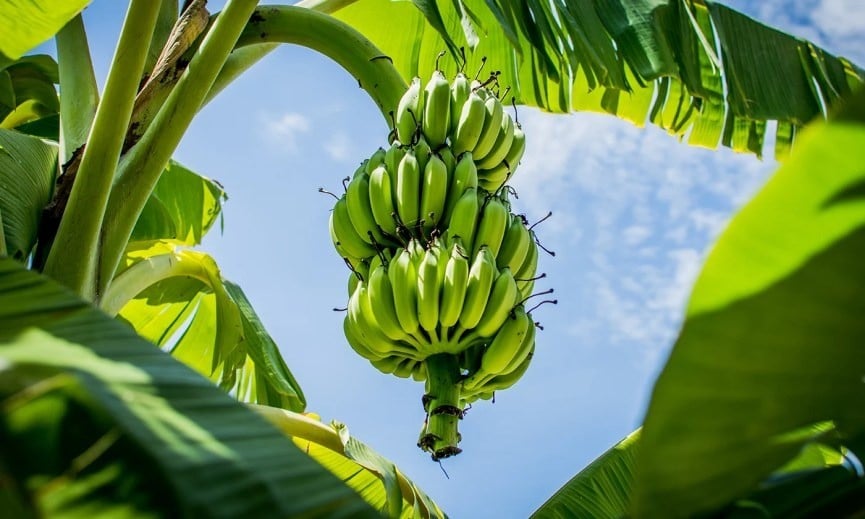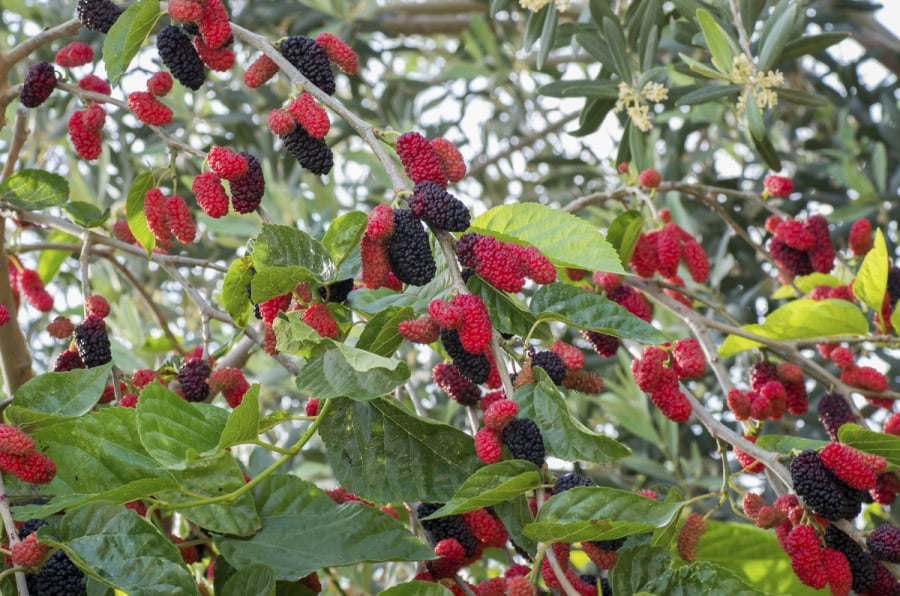In Vietnamese culture, it is believed that trees provide more than just shade and food; they are also steeped in spiritual and feng shui significance. The elders often advised, “Planting a tree is planting good fortune, and preserving a tree is preserving prosperity.” In the gardens of ancient families, three particular tree species were considered bringers of luck and protectors against misfortune.
Below are three common yet profoundly meaningful trees that every family should cherish and protect.
1. Banana Tree – Leaves Invite Prosperity, Trunk Guards Wellbeing
Beyond its ubiquitous presence in rural life, the banana tree is a revered feng shui symbol. Its large, spreading leaves resemble open hands, inviting fortune and peace. Traditionally, planting banana trees behind the house serves as a protective “screen,” warding off bad luck and safeguarding the family’s wellbeing.
Despite its familiarity, the banana tree’s placement should be thoughtful. Wealthy families often avoid planting banana trees in front of their homes, believing that the tree might block positive energy and hinder prosperity. Instead, the ideal location is at the back or side of the house, both for feng shui harmony and convenient care.

The banana tree is also a “treasure trove” in cuisine and daily life: banana flowers are used in salads, the fruit is a rich source of potassium, leaves are used for wrapping cakes, and the trunk provides animal feed. For less fortunate families, the banana tree symbolizes resilience, abundance, and sustenance.
2. Star Fruit Tree – Giving and Receiving, Sustaining Long-lasting Blessings
Associated with the folk tale “Eating Star Fruit, Returning Gold,” the star fruit tree symbolizes fairness and karma. In folk culture, having a star fruit tree in one’s garden represents a willingness to nurture and share, accumulating blessings for future generations.
Many elders believe that families who preserve ancient star fruit trees, especially those deeply rooted over generations, will enjoy peaceful family lives, with successful and accomplished descendants. The star fruit tree serves as a “witness” to the family’s enduring legacy.
Beyond its spiritual significance, the star fruit tree is incredibly useful. Its fruit can be turned into delicious sweet and sour dishes or refreshing juices, while its leaves, flowers, and roots are used in traditional medicine to reduce fever, fight inflammation, and soothe coughs. Thus, the star fruit tree is a “multipurpose” plant, valued for its material benefits and symbolic meaning.
3. Mulberry Tree – Balancing Yin and Yang, Preserving Family Harmony
Often overlooked for its aesthetic value, the mulberry tree is rarely chosen as an ornamental plant. However, in Eastern philosophy, the mulberry tree is believed to possess special powers to ward off evil and balance yin and yang energies within a home.

In feng shui, the mulberry tree is said to dispel negative energy and neutralize harmful forces, especially when planted in the northeast direction or in front of the house. For families facing challenges and financial instability, the mulberry tree acts as an invisible shield, protecting their livelihood and preserving harmony.
The mulberry tree also has medicinal value. Its leaves can be used to make cooling tea, while the fruit improves blood circulation and sleep quality. Additionally, the bark and branches are used to relieve pain and reduce wind-related ailments in traditional medicine. In Eastern medicine, the mulberry tree is considered a natural pharmacy for the entire family.
In modern times, while some opt for expensive ornamental plants to decorate their homes in hopes of changing their fortunes, it is the humble banana, star fruit, and mulberry trees that truly bring lasting prosperity and blessings.
































